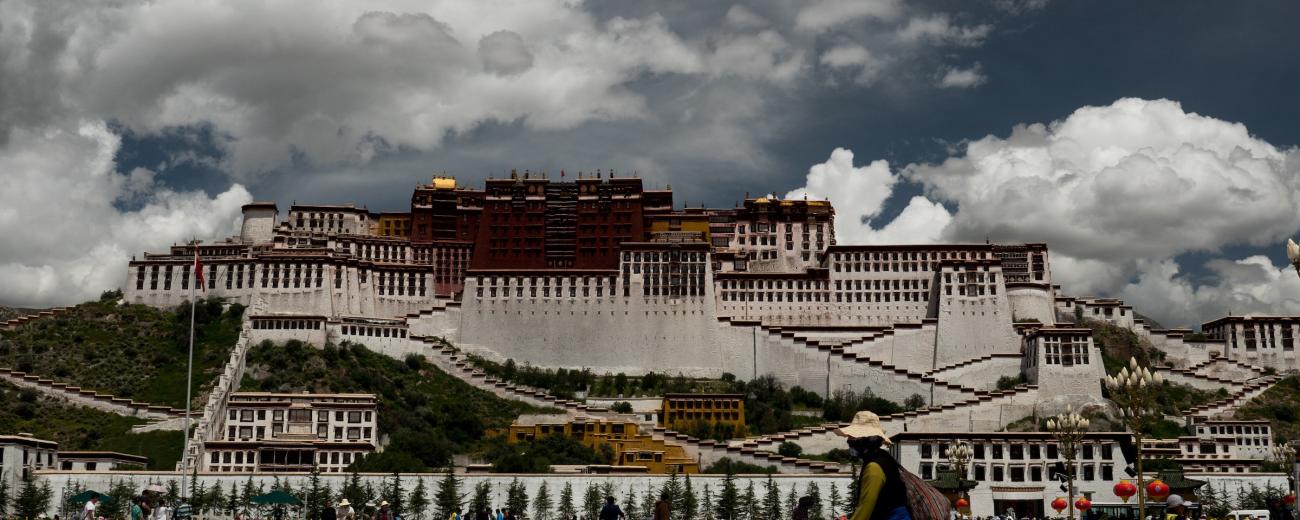
Trans-Himalayan histories: Kalimpong-Lhasa-ShangriLa-Beijing

Key information
- Date
- Time
-
5:00 pm to 6:30 pm
- Venue
- Main Building, SOAS
- Room
- RB01
About this event
Zhou Enlai, the first post-revolution Chinese Premier, famously described the Indian hill station of Kalimpong as a ‘nest of spies’; while India’s first postcolonial Prime Minister, Jawaharlal Nehru, compared it to other strategic border towns like Hong Kong as a ‘peculiar place’, ‘a hotbed of the opponents and enemies of the Chinese Government.’ Mao Zedong was also to observe in relation to the Dalai Lama’s visit in 1956: ‘In Kalimpong there are spies of various states and also secret agents of the Kuomintang’.
In this talk, I will delineate some of the shared histories across the Himalayan passes between the 1930s until 1962. The focus will be on espionage, politics of territorial sovereignty, wars, and trade flows that linked Tibet, China, and India. While New Delhi and Beijing (and Chongqing for a time) served as political capitals, less prominent but strategic centres such as Shangri-La (or Gyalthang) and Kalimpong became important conduits facilitating exchanges, both affable and vicious.
The talk will critically contextualise Chinese patriotism (aiguozhuyi) and nationalism (minzuzhuyi) and its concomitant politico-cultural technologies of memorialising. The ‘zomic mobility’ across the Himalayan borders, created by commercial networks linking India, Tibet and China features centrally in the intimate connections forged between the spaces of Shangri-La and Kalimpong. Through retelling the life story of Shangri-La born ‘Chinese Communist’ trader Ma Zhucai (馬鑄才) (1891-1963), who lived in Kalimpong for more than 40 years, India’s geographic and economic entanglements with GMD and CCP China are brought into focus, enabling us to map out the articulated tensions of a ‘transcultural patriotism.’
Photo by Raimond Klavins on Unsplash
About the speaker
Professor Prem Poddar is Senior Fellow at Manchester University Press after a decade as Professor in Cultural Encounters at Roskilde University. He has held positions as Postcolonial Studies director for many years at Arhus University and was Alexander von Humboldt Senior Fellow in Berlin, Carlsberg Fellow in Cambridge University and Visiting Professor at Fudan University a few times.
He is the author of Violent Civilities: English, India, Culture and Poskolonial Kontra-Modernitet: Immigration, Identitet, Historie; has written many peer-reviewed articles, and edited many books on postcolonial literatures, cultures, and histories.
His recent work has appeared in China as Cengjing de weilai 曾经的未来 (Past Futures). The talk he will present comes out of his book (in print with Cambridge University Press) China in India: Himalayan Kalimpong.
Chair
- Dr Lars Laamann, Department of History, SOAS University of London
Registration
This event is open to the public and free to attend, however registration is required.
Please note that this seminar is taking place on campus and will not be recorded or live-streamed.
Contact
- Email: sci@soas.ac.uk


